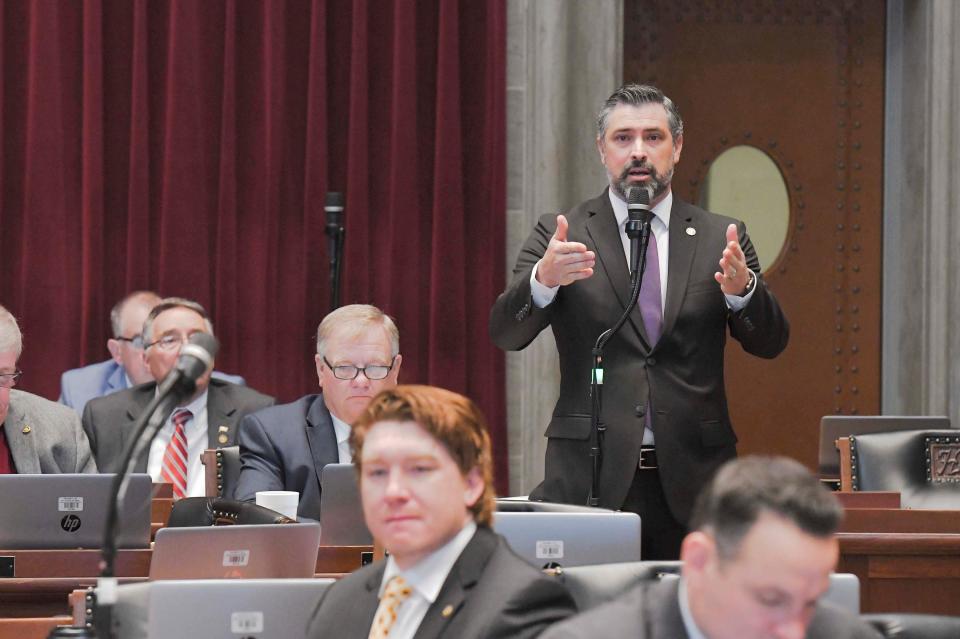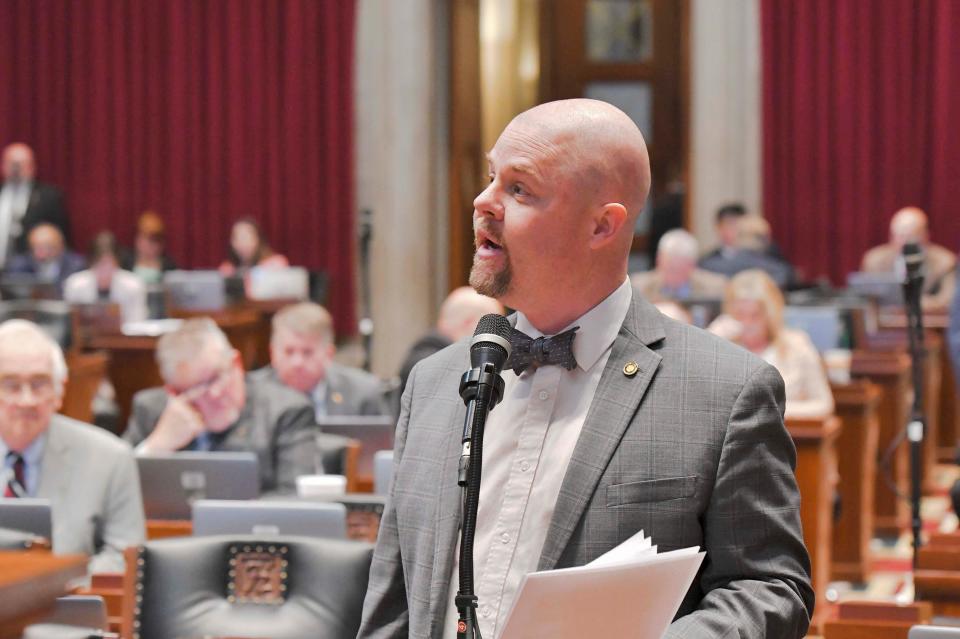Missouri lawmakers put question on ballot asking voters to ban ranked choice voting
In a legislative session that was marked by disputes over asking voters whether they wanted to change the initiative petition process, another resolution was passed that will put the question of ranked choice voting before the people.
Ranked choice voting refers to the practice in which voters rank the candidates on a ballot according to preference. If one candidate receives an outright majority, they would win the election.
If none have a majority, the candidate with the fewest votes would be eliminated, and the votes that indicated that candidate as their top ranked choice would be dispersed among the remaining candidates according to the ranking of candidates on those ballots.
If no candidate has a majority after this reevaluation, the process is repeated by eliminating the next lowest ranked candidate, and redistributing their voters until one candidate has a majority of votes and can be declared the winner. This is the most common ranked choice voting practice, but there can be variations.

State Rep. Ben Baker, R-Neosho, who carried the Senate resolution sponsored by state Sen. Ben Brown when it reached the Missouri House, argued that the practice of ranked choice voting is confusing to voters.
“Missourians don't want more voter confusion and exhaustion when they go to the ballot box than they already have,” Baker said. “They don't want slower results. They don't want increased irregularities. Missourians don't want to show up to the polls only to have their votes thrown out.”
State Rep. Eric Woods, D-Kansas City, raised the concern that prohibiting ranked choice voting, which currently is only used in some elections in St. Louis, could hinder voting by members of the military in the future.
“Missouri does not do this,” Woods said. “Maybe we could in the future, because at the end of the day, I think that we have a possibility to disenfranchise servicemembers, perhaps by getting ballots to them that are no longer valid by the time they're able to be returned.”
Because their ballots sometimes take awhile to get to the troops and back to the U.S. from where they are stationed, he thinks using ranked choice voting in this instance could prevent military votes from being wasted.
This legislation does include a carve out for “any nonpartisan municipal election held in a city that had an ordinance in effect as of November 5, 2024,” which would protect the practice already in use in St. Louis.
Although the initiative petition measure failed to pass this session, the question about ranked choice voting will also feature a part of the “ballot candy” that eventually doomed the ballot initiative legislation.
More: Missouri's 2024 legislative session ends with no action on initiative petition bill
The term “ballot candy” refers to an item added to ballot questions as a sweetener to entice people to vote in favor of an issue that they might otherwise reject.
In this instance, the ballot candy featured on SJR 78 will ask voters if they want to prevent noncitizens from voting, something that is already prohibited by state law.
There was some debate about this earlier in the legislative session, with proponents of the measure arguing that the state’s current statute says “all citizens” may vote, when they would prefer to have language that says “only citizens” may vote.

State Rep. Brad Banderman, R-St. Clair, noted that when SJR 78 was debated in the Missouri House on the final day of session, he wasn’t hearing the same staunch opposition to the ballot candy as was heard when it was attached to SJR 74, the measure that would have raised the threshold for passing initiative petitions.
“It's been a robust discussion. It seems like we've been wringing our hands for about a week or two on this particular issue, but on this day, on this Senate Joint Resolution, the other side of the aisle doesn't seem to be standing up mics complaining about whatever they want to term some important pieces of these joint resolutions,” Banderman said.
A final provision in the legislation specifies that all voting must be done by paper ballot or “any mechanical method prescribed by law.”
The legislation passed in the Missouri House on the final day of the legislative session with a vote of 97 to 43. It is unclear whether it will appear on the August or November ballot, as that decision is at the discretion of Gov. Mike Parson.
This article originally appeared on Springfield News-Leader: Missouri voters will face ballot question about ranked choice voting

